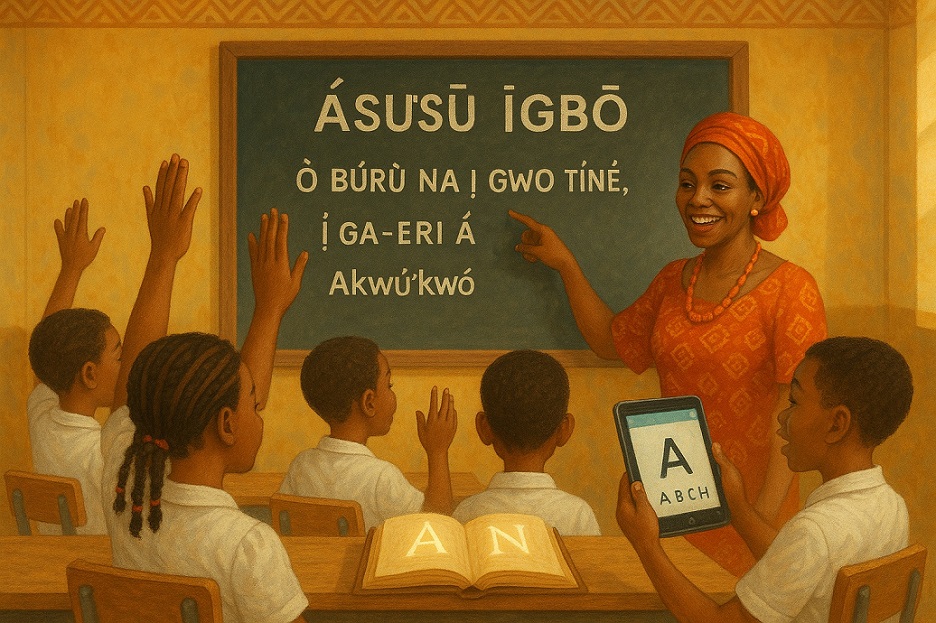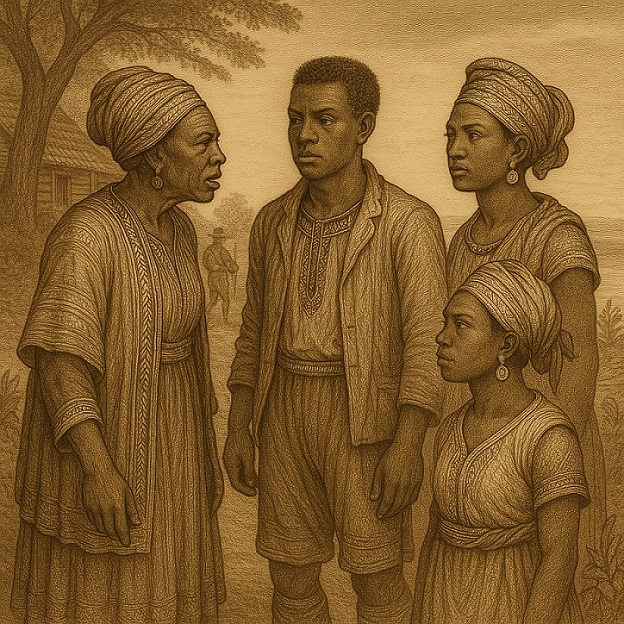
Should Igbo Language Be Compulsory in Southeast Schools? Here's What Experts Say
Bongo Music Africa
Author
The Igbo language, one of Nigeria's three major languages, is facing a steady decline in usage, especially among younger generations. With English and Pidgin dominating daily communication, many fear that the Igbo language could become extinct if urgent measures aren’t taken.
One proposed solution is making Igbo language compulsory in schools across Nigeria’s Southeast region. But is this the right approach? What do cultural experts, linguists, and educators say? Let’s explore the arguments, historical context, and expert opinions on this pressing issue.
The Decline of the Igbo Language: A Growing Concern
According to UNESCO, the Igbo language is classified as "vulnerable", meaning it is at risk of disappearing if preservation efforts aren’t intensified. A 2020 survey by the Society for the Promotion of Igbo Language and Culture (SPILC) revealed that less than 20% of Igbo children in urban areas can speak the language fluently, compared to over 70% in the 1980s.
- Several factors contribute to this decline:
- Parental preference for English: Many parents prioritize English, believing it offers better economic opportunities.
- Lack of formal education in Igbo: Most schools in the Southeast teach Igbo as an optional subject, if at all.
- Cultural globalization: Exposure to Western media and technology reduces the use of indigenous languages.
Historical Context: How Did We Get Here?
Before colonialism, the Igbo language thrived as the primary means of communication, education, and cultural expression. However, British colonial policies marginalized indigenous languages, enforcing English as the official medium of instruction.
Post-independence, Nigerian governments made efforts to promote indigenous languages, including the National Policy on Education (1977), which mandated the teaching of major Nigerian languages (Hausa, Igbo, Yoruba) in schools. However, implementation has been weak, particularly in the Southeast, where many private and public schools neglect Igbo language education.
The Case for Making Igbo Compulsory in Southeast Schools
Proponents argue that compulsory Igbo education is necessary to reverse language extinction. Key arguments include:
1. Cultural Preservation
- Language is a core aspect of identity. Losing Igbo means losing proverbs, folklore, and traditional knowledge.
Prof. Pita Ejiofor, a renowned Igbo linguist, states: *"A people without their language are a people without a soul. If we allow Igbo to die, we lose our history."*
2. Improved Cognitive Development
- Studies show that children who learn in their mother tongue perform better academically.
- The World Bank (2021) reported that students taught in their native language have higher literacy rates and critical thinking skills.
3. Economic and Social Benefits
- Knowing Igbo can strengthen community bonds and business networks within the Southeast and the diaspora.
- Countries like China and Japan prioritize their native languages while still excelling globally—proof that mother tongue education doesn’t hinder progress.
Opposing Views: Is Compulsion the Right Approach?
Not everyone agrees that forcing Igbo in schools is the best solution. Critics argue:
1. Parental and Student Resistance
- Many parents may resist, believing English is more valuable for career success.
- Students might see it as an unnecessary burden if they don’t perceive real-world benefits.
2. Implementation Challenges
- Lack of qualified Igbo teachers and standardized curricula could hinder effectiveness.
- Dr. Ngozi Ezenwa-Ohaeto, an education consultant, warns: "Without proper teacher training and engaging teaching methods, compulsory Igbo may backfire, making students resent the language."
3. Alternative Solutions
- Some suggest incentivizing Igbo learning (e.g., scholarships, cultural festivals) instead of enforcing it.
- Media and technology (Igbo YouTube channels, apps like "Igbo101") can make learning more appealing to youths.
What Experts Recommend
A balanced approach may be the best way forward. Experts suggest:
- Mandatory but flexible – Igbo should be compulsory in primary and junior secondary schools, with exemptions for non-native speakers.
- Interactive learning – Use music, games, and digital tools to make Igbo fun for students.
- Community involvement – Parents and local leaders should promote speaking Igbo at home.
Final Verdict: Yes, But With a Strategic Approach
Making Igbo compulsory in Southeast schools could be a vital step in preserving the language—but only if done right. A combination of government policy, community effort, and modern teaching methods is needed to ensure the language thrives without alienating learners.
What do you think? Should Igbo be compulsory in Southeast schools? Share your thoughts in the comments!
References & Further Reading
- UNESCO Atlas of the World’s Languages in Danger
- Society for the Promotion of Igbo Language and Culture (SPILC)
- World Bank Report on Mother Tongue Education (2021)
- Interviews with Nigerian linguists and educators
Would you support compulsory Igbo language education? Let’s discuss! 🚀




